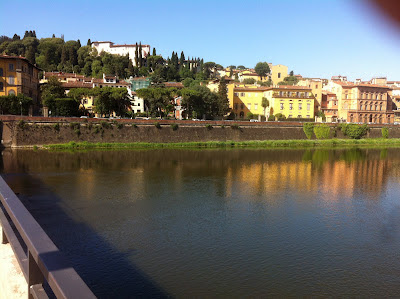
“The smell of a freshly printed book is the best smell in the world.”
Karl Lagerfeld
My iPad doesn’t smell and of course the e-books I read on the Kindle app don’t either. However my printed books do, a pleasure derived from my very first days of reading and one that I miss with those I read on an e-reader.
Printed books don’t smell the same either, a feature that broadens their pleasure. Age, paper, binding and cover contribute to these differences. It has been described this way:
The ink and chemicals used in the production of a book reacts with heat, moisture and light, causing the organic materials to break down. This is especially true for books with high acidity, like those made during the 19th and 20th centuries.
The books deep in the library stacks at the university where I went as an undergraduate smelled old, some a bit musty. The air circulation down there in those days was poor, it was hot, and dark. You had to switch a light on to find what you were looking for on the shelves.
That smell was quite different from those Bantam paperbacks I recall reading as a kid. Whenever I come across one of those paperbacks today, they still smell the very same way.
“When I open them,
most of the books have the smell
of an earlier time leaking out between the pages -
a special odor of the knowledge
and emotions that for ages
have been calmly resting between the covers.
Breathing it in,
I glance through a few pages before returning each book to its shelf.”
- Haruki Murakami (Kafka on the Shore)
Strangely, after all of these years, I’ve not forgotten the peculiar blend of paper, leather, and dust that I inhaled each time I stepped foot in the little neighborhood library of my hometown.
It is hard to describe odors in general and even harder to describe the various smells of books. We don’t have words for the wide range of odors that come our way even though the sense of smell is one of our most primitive.
Yet, it has been estimated that humans can distinguish thousands of different odors—aromas, fragrances, and scents. Though we can make such distinctions, we can attach a name to only fraction. However we can conjure up countless associations to the distinctive smell of books—the book we read on a park bench in Flore ce, or the one we read on the floor at Powell’s, another deep in the stacks of what is now known as the Green Library, etc.
If you miss the smell of e-books as much as I do, you will be pleased to learn that through the wonders of technology, our problems have finally been solved. Thanks to Smell of Books, you can now chose to give your e-books a distinctive smell with their “revolutionary new aerosol e-book enhancer.”
But wait there is more. You can now choose between five, no less, distinctive aromas—classic musty, crunch bacon, eau de cat, new book, and finally their five star aroma, sense of scent of sensibility.

You can also relax secure in the knowledge that “Smell of Books™ is compatible with a wide range of e-readers and 100% DRM-compatible. Whether you read your e-books on a Kindle or an iPhone using Stanza, Smell of Books™ will bring back that real book smell you miss so much.”





















